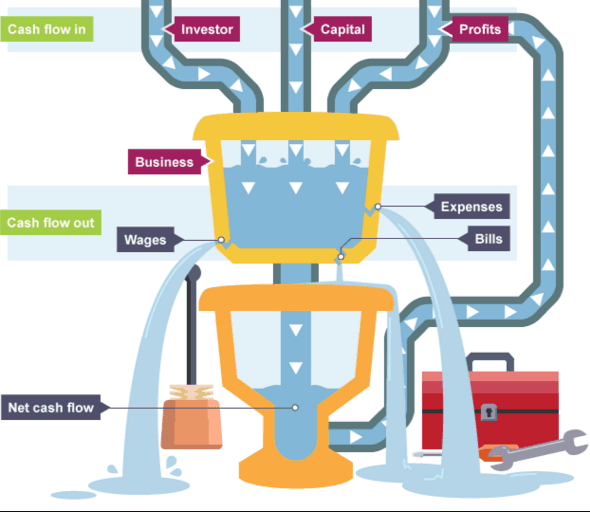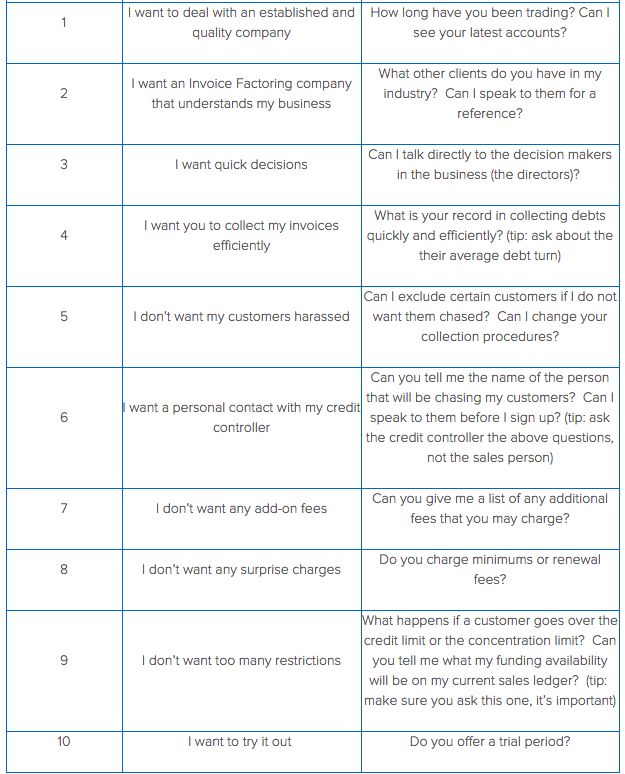business resources
How To Manage Your Cash Flow With Invoice Finance
8 Sept 2022, 3:37 am GMT+1
How To Manage Your Cash Flow With Invoice Finance
Maintaining a cash flow can present a number of challenges to many businesses, and sadly, only a few of them have available options to ease the pain. Studies have shown that, about 90% of business owners struggle to get paid on time when they offer goods and services to a client(s). This has been a problem for ages and many businesses have failed as a result of late payment from debtors. However, the good news is that, there are ways is through invoice financing. The invoice financing is a situation where a third party is involved in the outstanding payment deal by agreeing to buy your unpaid invoices for some interests. The use of invoice financing is highly important in any business if you want to get back your money in time. For example, a customer owes you $30,000, and you sell the invoice to an invoice financier (third party) for $25,000; the invoice fancier collect $30,000 from your debtor and pay you the remaining $5,000; you then pay the invoice financier on the agreed interest rate upon the success of the transaction. This looks easy and simple if all businesses can adopt the method. Moreover, it’s important to know that, the invoice financier can be independent, financial intuition, or a bank. Find out below, how you can manage your cash flow with invoice finance.
Debt factoring is a term used to describe the act in which an invoice financier manages your sales ledger and all the processes involved in collecting your money from debtors. Oil-based businesses can work with oil and gas factoring companies to convert outstanding invoices into immediate cash, ensuring they have the necessary funds to cover operational expenses and expand their ventures. When this happens, your customer will definitely know you’re using invoice factoring, and it will help you get your money very quickly. Here are the stages involved in debt factoring:
- The Use Of “Debt Factoring” Method To Manage Cash Flow With The Invoice Finance
Debt factoring is a term used to describe the act in which an invoice financier is managing your sales, ledger, and all the processes involve in collecting your money from debtors. When this happens, your customer will definitely know you’re using invoice financing and it will help you to get your money very quickly. Here are the stages involve in debt factoring:
- You initiate the offer by raising an invoice, and the invoice financier will buy the debt owed to you by a client.
- The invoice financier will pay you at instant, a percentage of the cost – usually from 80%.
- The invoice financier will use their power to collect the full amount from the said client or debtor.
- Once the third party (invoice financier) collect your money from the customer, they complete the remaining balance available for you, and you will have to pay them certain interest based on the agreed terms.
Many industries rely on factoring to improve cash flow. You can find factoring companies that handle cash flow issues for all kind of businesses or ones that industry specific like TBS Factoring who only handle truckers.
 Cashflow machine Infographic, source BBC Education
Cashflow machine Infographic, source BBC Education
- The Use Of Discount Invoicing To Manage Your Cash Flow
This method is also viable and it (indirectly) includes the third party as well, but in a completely different format. With invoice discounting, the invoice financier won’t have anything to do with your debtors but will lend you money against your unpaid invoices, which you will pay them later. This is done only if there is a strong agreement between you and the invoice financier, but you will have to pay a certain interest in addition to the amount you will borrow. Remember that the total amount of money of being transferred into and out of a business, especially as affecting liquidity is your cashflow. But the most important is keep light in a solid process, transparency in the way you do your accounting and business, and in what is important and that no company can make decisions for you.
Conclusion
In conclusion, it’s important to know that, invoice financing is highly recommended in a situation where you are in haste to get your money back from a customer. However, if you will be patient enough to wait till you get paid by your debtors then invoice financing may not be useful to you. There are a lot of fantastic fintech SME Finance platforms and players in the market. Before doing any advance do your homework and research. Make sure you search for relevant players and call and ask all the questions. Some of the platforms offer software for calculations. Be prepared as well. A lot of new platforms are offering new solutions and special new alternative finance companies focused in SME finance can help you. But you need to be prepared and do your homework. Also the UK Government offers various websites that can help your business and advice you in your queries. Cash flow is simple the movement of money in and out of the business but the most important is to have a sound and healthy business based in real numbers and clear understanding of the way you operate and your weakness and strengths. To finish 10 Important Questions to ask yourself before you advance, do your home work and don't leave things for last minute. Most of the companies leave the decision to last minute:
10 questions to ask before advancing with Invoice Finance / Alternative Finance for SMEs. Do your homework!
Share this
Contributor
Staff
The team of expert contributors at Businessabc brings together a diverse range of insights and knowledge from various industries, including 4IR technologies like Artificial Intelligence, Digital Twin, Spatial Computing, Smart Cities, and from various aspects of businesses like policy, governance, cybersecurity, and innovation. Committed to delivering high-quality content, our contributors provide in-depth analysis, thought leadership, and the latest trends to keep our readers informed and ahead of the curve. Whether it's business strategy, technology, or market trends, the Businessabc Contributor team is dedicated to offering valuable perspectives that empower professionals and entrepreneurs alike.
previous
Britain is the leading FinTech centre in the world
next
How Conveyor Solutions Can Optimize Warehouse Procedures
